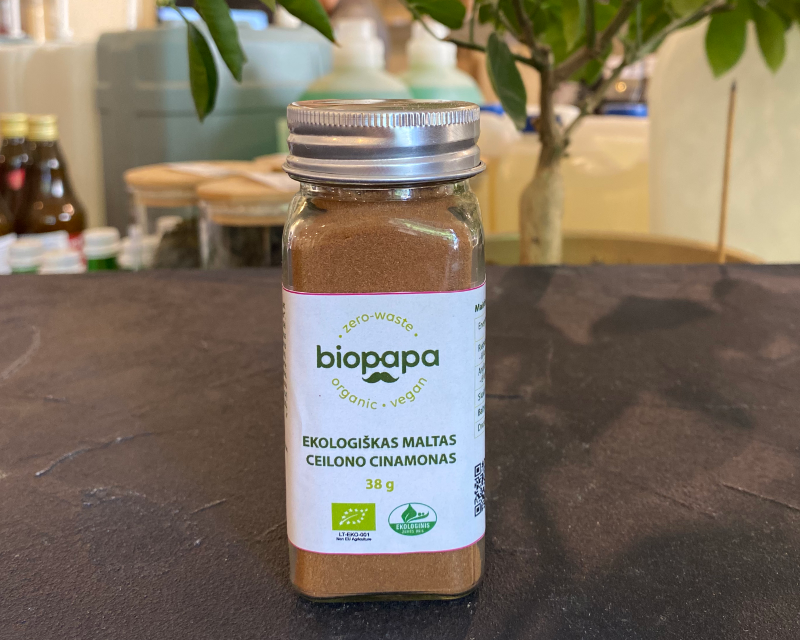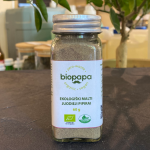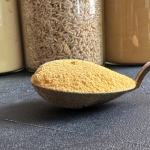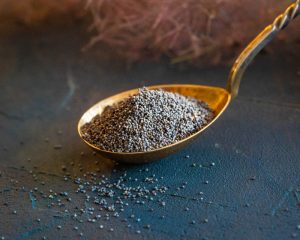Organic ground Ceylon cinnamon, 38 g, Biopapa
4.00€
Since ancient times, cinnamon has been valued not only in culinary traditions, but also in natural medicine practices around the world. There are two main types of cinnamon, each with its own unique properties and potential health effects: Ceylon cinnamon (Cinnamomum verum) and Cassia cinnamon (Cinnamomum cassia).
We will look at the advantages and side effects of both varieties, and discuss in more detail the advantages and health benefits of Ceylon cinnamon.
Ceylon cinnamon
Ceilonas kanēļa, kas pazīstams arī kā “īstais kanēlis”, dzimtene ir Šrilanka un Indijas daļas. It is known for its delicate, mildly sweet taste and aroma.
Ceylon cinnamon contains lower levels of coumarin (an aromatic substance that accumulates in cinnamon bark), which can be toxic to the liver if consumed in large quantities. For this reason, Ceylon cinnamon is preferred to Cassia cinnamon, which has a higher coumarin content.
In Ayurveda and Traditional Chinese Medicine (TCM), Ceylon cinnamon is highly valued for its healing properties. It is thought to support the digestive system, promote respiratory health and help balance blood sugar levels.
Use of Ceylon cinnamon
Baking: Ceylon cinnamon is a great addition to baked goods. Use it in cakes, biscuits, muffins and breads for a subtle and aromatic flavour.
Cereal: sprinkle a pinch of Ceylon cinnamon on your morning oatmeal or cereal to make your day cosy and delicious.
Smoothies: mix Ceylon cinnamon into your favourite cocktail recipes to add a warm and inviting flavour.
Hot drinks: add a pinch of Ceylon cinnamon to hot drinks such as coffee, tea, hot chocolate or chai masala.
Yoghurt: mix Ceylon cinnamon in plain yoghurt with a little honey or maple syrup.
Stews: Ceylon cinnamon adds a subtle flavour to savoury dishes such as curries, stews and sauces.
Rice dishes: sprinkle Ceylon cinnamon on rice dishes such as biryani or plov to enhance their flavour.
Enjoy the unusual aroma and unique flavour that Ceylon cinnamon will bring to your dishes!
NOTE. The information provided here should not be interpreted as advice for treatment or other health problems. We encourage you to make decisions about your personal health by considering different sources of information.
100% organic cinnamon
Energy value 1005 kcal / 243 kJ
Fat 1 g
- of which saturates 0,3 g
Carbohydrate, excluding fibre 28 g
- of which sugars 2 g
Protein 4 g
Salt 0,025 g
Store in a cool, dry place. Keep out of direct sunlight.














